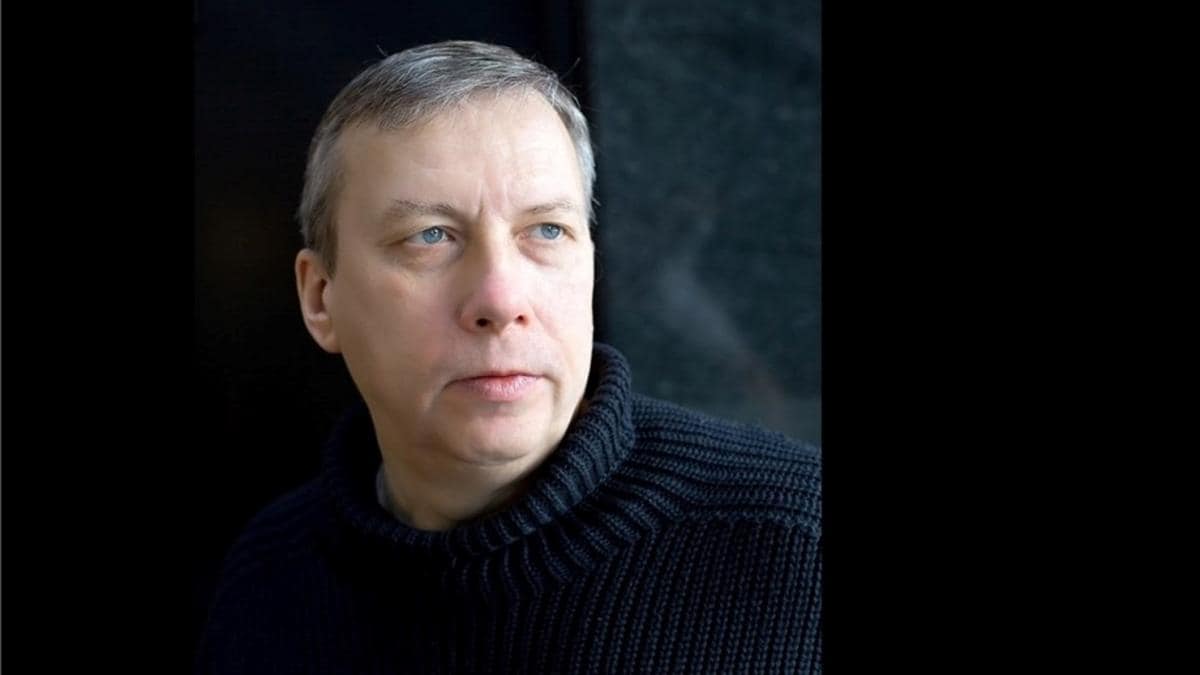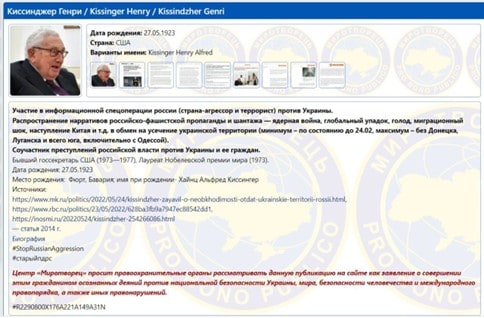Russian poet and publicist Igor Karaulov pushes back against private groups combatting anti-Russian cultural activities that openly state they would emulate the tactics of US Senator Joe McCarthy. Since questioning any form of patriotic initiative is problematic Karaulov, while regarding blacklists as medieval essentially resorts to two main arguments. First, the job should be left to government organizations with complete information about the negative and positive work of cultural figures. Private meddling will only arouse enmity and ridicule. Secondly, the blacklists are un-Russian. By adopting this tactic, Russia would put itself in the same category as Ukraine, whose blacklist includes figures such as Henry Kissinger, supporters of Navalny and Russian emigres with their lists of "good Russians".
Karaulov's article follows below:[1]

Igor Karaulov (Source: Smotrim.ru)
"The Group for Investigating Anti-Russian Cultural Activities (GRAD) held a meeting at the State Duma under the auspices of the A Just Russia party, arousing some interest among the patriotic public. But despite the formidable name, it all looks more like a counter-cultural project.
"It’s not just about the fact that 'patriotic culture' today, almost 6 months after the launch of the special operation in Ukraine [hereafter - SVO], still feels like a subculture that has yet to win its place in 'big' culture.
"The fact is that the name of the project reads like a peculiar challenge, a 'slap in the face to public taste.' The title directly refers to the House Un-American Activities Committee that was active in the US from 1934 until 1975. This immediately leads to accusations of 'McCarthyism' and of 'witch-hunts,' although the Senator Joseph McCarthy's activity was not directly related to this committee.
"However, McCarthy’s legacy can be perceived differently.
"One can deny it, asserting that it’s pure coincidence, or that the essence of the case is supposed to be completely different, or you can, as [nationalist journalist] Alexey Volynets one of the meeting’s participants did, and call for a fruitful study of the American senator’s legacy, 'We need our Russian, Soviet McCarthyism.'
"However, this analogy isn’t really very inappropriate. Without any authority whatsoever, the GRAD would probably expose itself to ridicule, provided it would start handing out directives [like]: fire this director, don't give parts to a certain actor, don't publish this writer. There is an established system of authorities in the cultural sphere with their own spheres of competence, systems of expertise, and thus any new contender for authoritative opinion will encounter hostility and ridicule.
"Therefore, such a group wouldn’t realistically be able to do any work other than information and advocacy. It could be the management of public campaigns, based on some sort of blacklist, the first points of which, have already been shown during the meeting. In other words, a very different analogy suggests itself.
"For instance, Ukraine has succeeded in compiling blacklists. The oldest and best-known project of this kind is the 'Myrotvorets' ['The Peacemaker'] website (which is banned in Russia as an extremist source), which contains so many genuine and imaginary agents of Moscow that even Henry Kissinger managed to get on there. Recently, I’ve discovered another Ukrainian internet resource, this time state-run 'War and Sanctions'."

Ukrainian blacklist with an entry for Henry Kissinger accused of 'spreading the narratives of Russian-fascist propaganda and blackmail' (Source: Ruposters.ru).
"I’ve discovered a number of my acquaintances on this site; it turns out I’m on there too. Each of the figures has a touching 'Call for more sanctions' option on their page, as well as a world map which should show the location of their assets (for me, as well as a majority of other figures, this map is blank).
"It’s also worth remembering the 'List of 6000' compiled by Navalny’s team, a sort of comprehensive denunciation to the Western masters in case the latter will run out of imagination in drawing up the next sanctions packages. Finally, the project of compiling a 'good Russians' list, which was proposed by some of our 'new emigrants' isn’t quite dead.
"Here, in this context, it is necessary to consider this cultural initiative. In general, the question is whether we should follow Ukraine’s lead in this matter (because it, supposedly, 'is winning the information war'), or whether we should flee this Ukrainian practice as we flee the plague, as from the practice of taping people to trees and other features of the middle ages.
"In my opinion, blacklists and pillories should be avoided at least on an official level, as it’s already impossible to stop the flow of popular initiatives on this issue that appear in social networks. What we actually need is an open public conversation about the civic position of both celebrities and managers in the fields of culture, education and the media.
"It’s impossible today to be 'apolitical' today, especially since it’s not about politics, but about the existential question: should our state, our civilization be or not to be.
"To be able to have a comprehensive and reasoned conversation on this issue, in my view, there needs to be a quite official centre for gathering objective information about the civil actions and statements of people, whose stance is of interest to a wide range of citizens, i.e., consumers of the information product. There is no need for blacklists, or tagging, just facts.
"In my opinion, not only negative but also positive information should be collected and systematized. The latter is even more important, as if we strive for cultural renewal, it’s necessary not so much to stigmatize the 'enemies,' calling for retribution on their heads, as it is to publicize and promote those who remained with their people. Without full information we continue to thrash about between two options, 'all is lost, the entire cultural elite is against' and 'everything is fine, only a few renegades are spoiling the picture.'
"Additionally, it should be kept in account that the cultural figures' opinion and conduct can change over time. They may have been victims of misinformation, they may say things under the influence of their circle, and in general, many of them are, astonishingly, able to think, analyze the situation as it develops and come to one conclusion or another. For instance, on February 24 a musician was shocked by what was happening and made an 'anti-war' statement, but later he comes to Donbass for a concert. However, I can’t recall such cases so far, but is it possible to rule it out in the future?
"In addition, there are probably people with an ambiguous position that does not fit into the usual framework, and even people, who by virtue of their image, are under the constant suspicion of patriots, although in fact they are on our side.
"A lack of information facilitates the appearance of unfounded speculation."
[1] Vz.ru, August 8, 2022.








